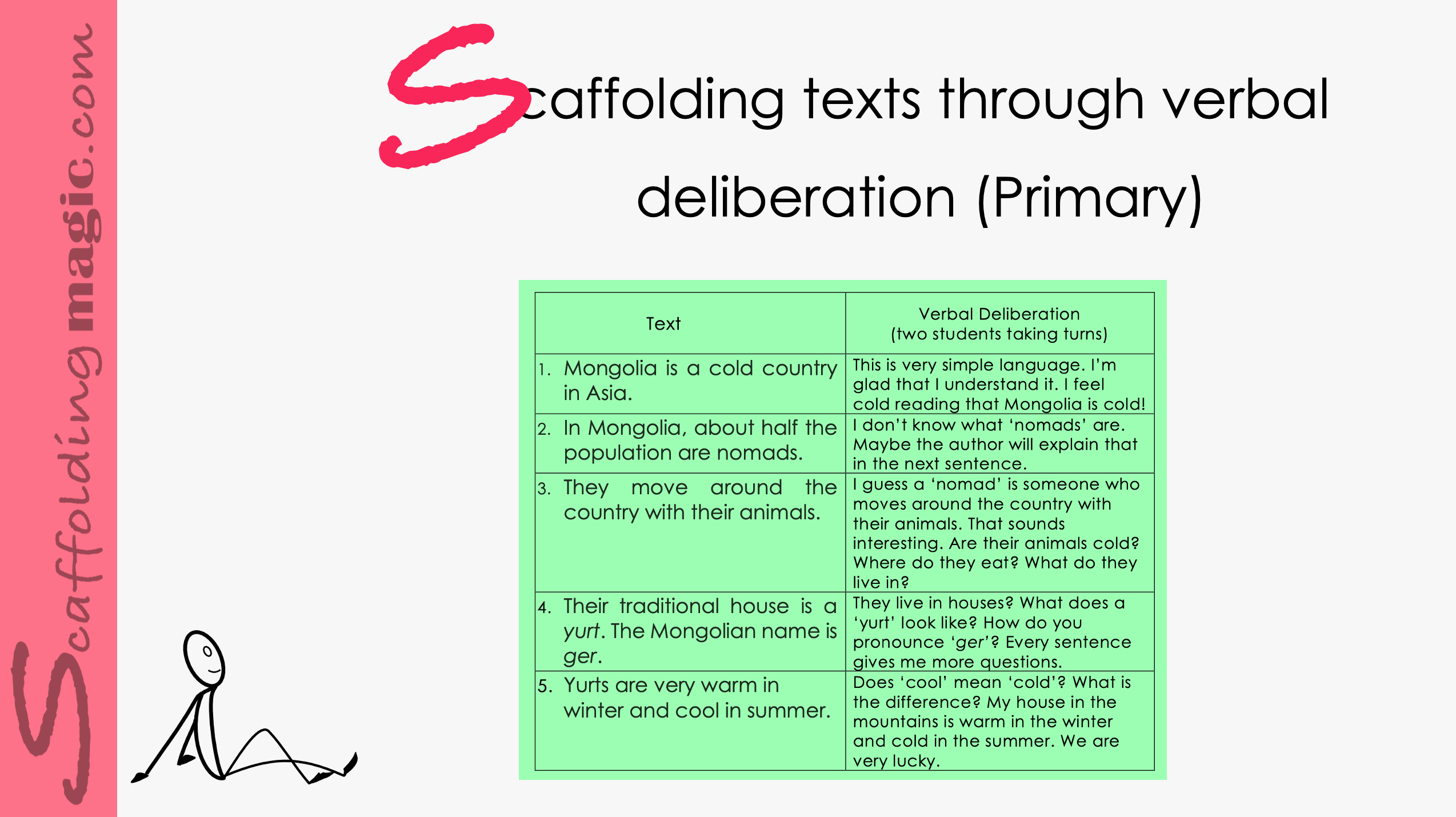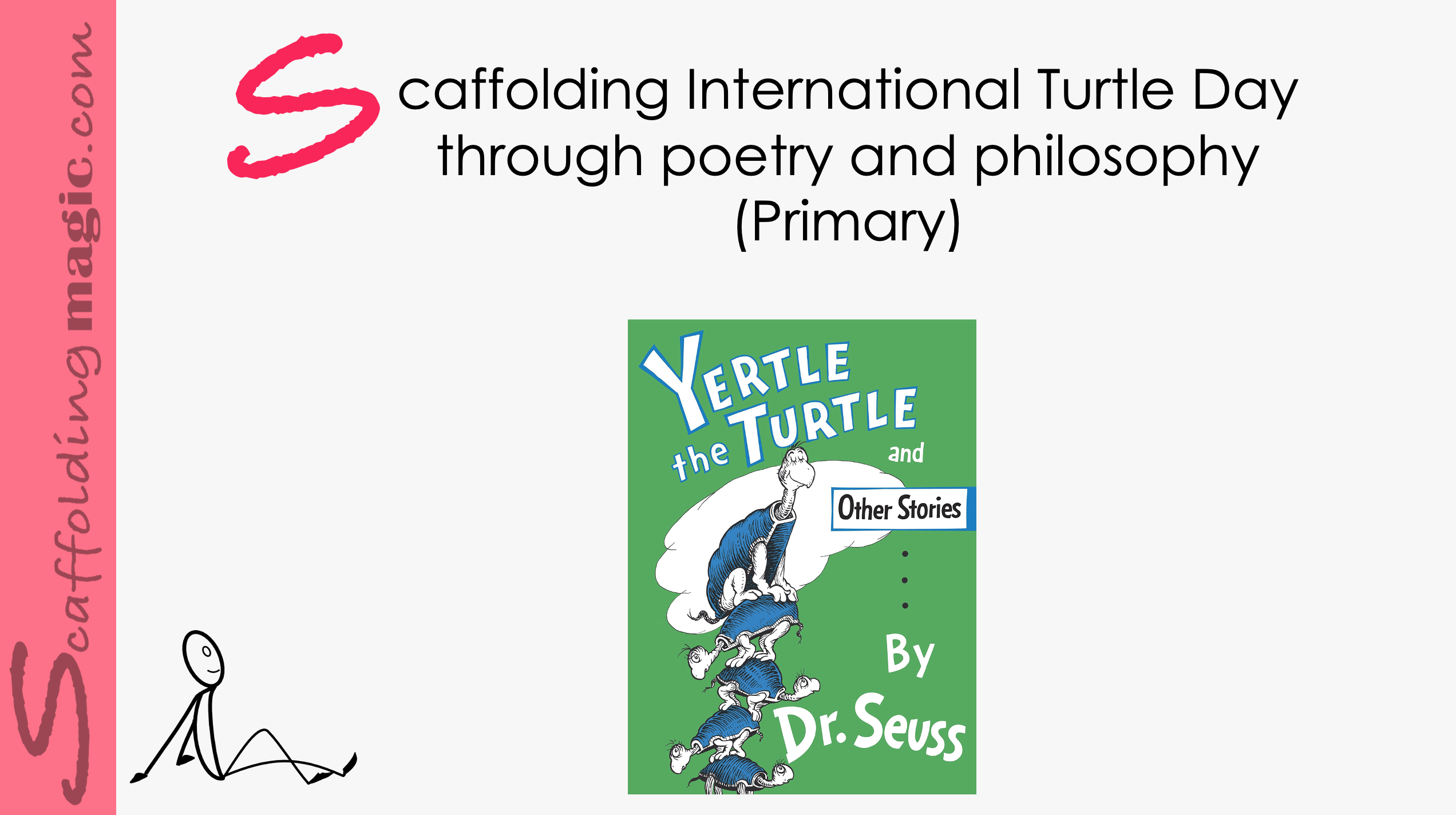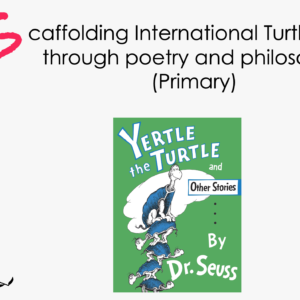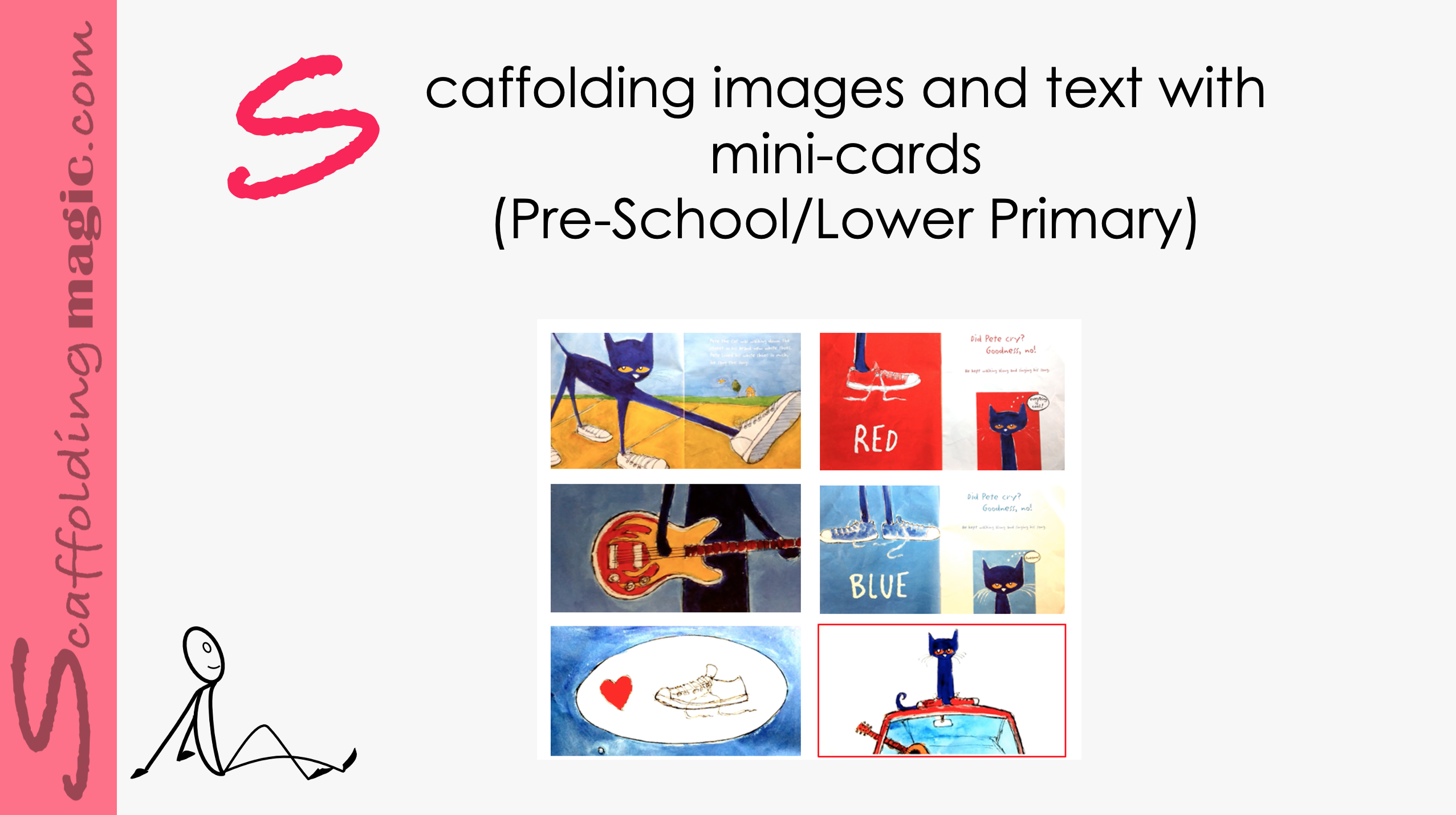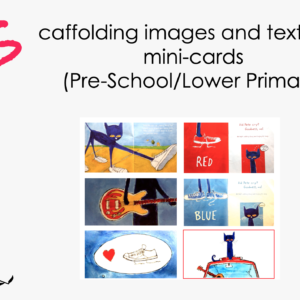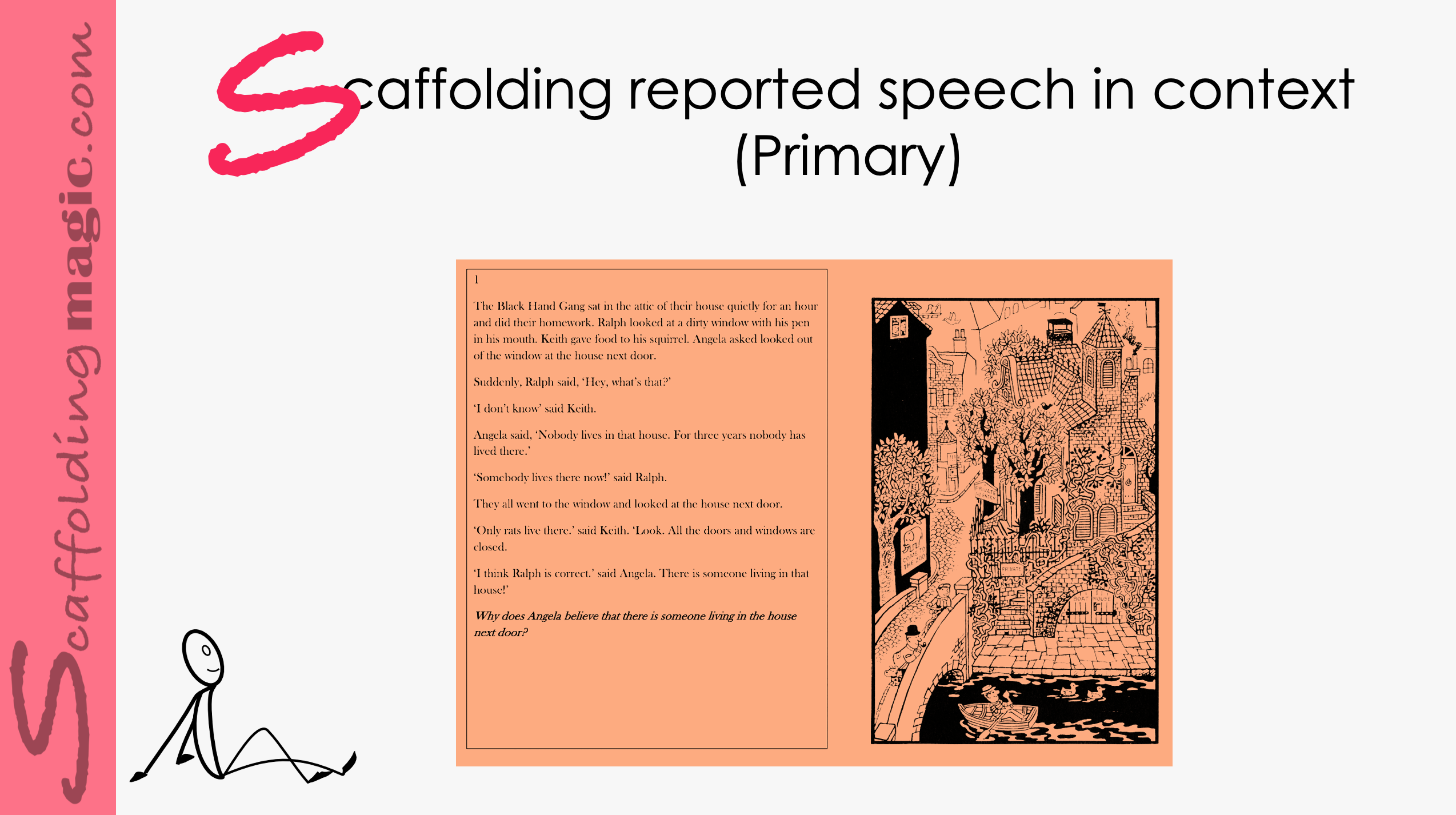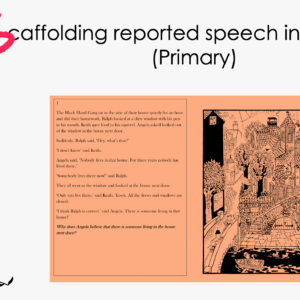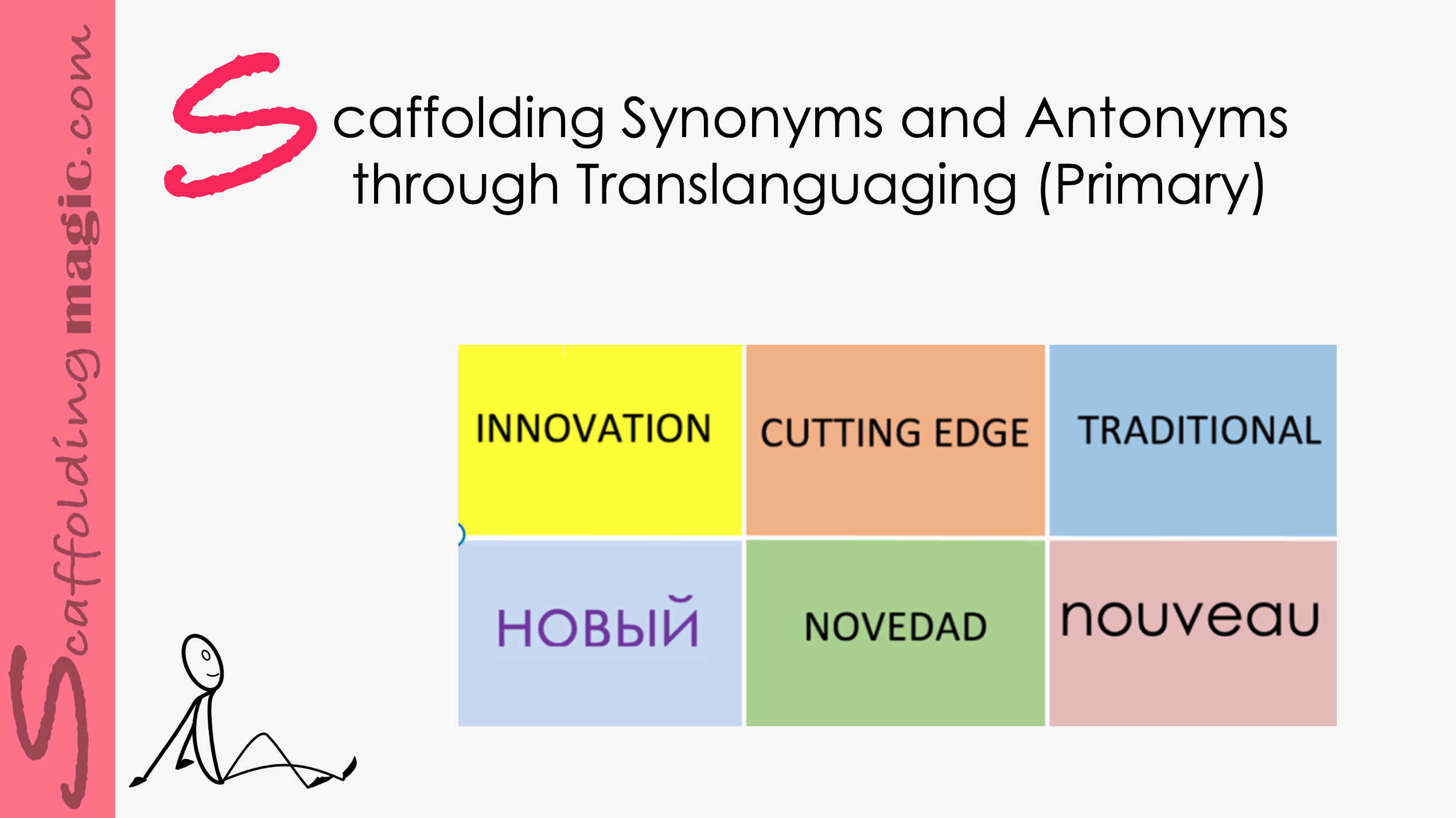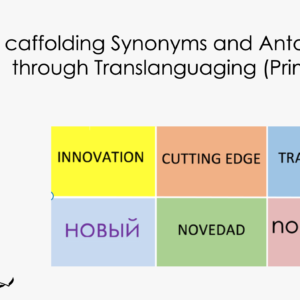This scaffold helps students to become personally involved in whatever text they are asked to read. The technique includes using verbal reasoning to aid in the reading of new material – so that the reader has the opportunity to build a mental representation of the text through critical thinking and deliberation. The active dialogue while reading helps students to maintain active nodes (that might otherwise be passive), and the construct of knowledge then becomes stronger and can be accessed longer.
Scaffolding Texts through Verbal Deliberation (Primary)
$5.00
This scaffold helps students to become personally involved in whatever text they are asked to read. The technique includes using verbal reasoning to aid in the reading of new material – so that the reader has the opportunity to build a mental representation of the text through critical thinking and deliberation. The active dialogue while reading helps students to maintain active nodes (that might otherwise be passive), and the construct of knowledge then becomes stronger and can be accessed longer.
Related products
- a children’s book writer…
- a poet…
- a poet…
- a children’s book writer…
- a poet…
-
Primary ScaffoldsQuick View
Scaffolding International Turtle Day through Poetry and Philosophy (Primary)
$5.00 Add to cartRated 0 out of 5 -
Primary ScaffoldsQuick View
Scaffolding Images and Text with Mini-Cards (Pre-School/lower primary)
$5.00 Add to cartRated 0 out of 5 -
Primary ScaffoldsQuick View
Scaffolding Reported Speech in Context (Primary)
$5.00 Add to cartRated 0 out of 5 -
Primary ScaffoldsQuick View
Scaffolding Synonyms and Antonyms through Translanguaging (Primary)
$5.00 Add to cartRated 0 out of 5
Scaffolding International Turtle Day through Poetry and Philosophy (Primary)
Seriously? A children’s book about turtles is philosophical? Oh yes it is! Theodor Seuss Geisel (Dr. Seuss), was not just a writer of children’s books, but a profound philosopher, a poet, a political advocate (sometimes controversial), and a promoter of critical thinking on all levels.
Scaffolding Images and Text with Mini-Cards (Pre-School/lower primary)
We all know by now (pretend that you do, even if you don’t!!!) that teaching critical thinking is a never-ending job. Critical thinking strategies are domain sensitive, which simply means that a strategy that works in art may not work in history, and a strategy that works in for a verbal deliberation may not work in a situation that requires physical movement, etc.
We look at all this as an opportunity to expand our practice. We can take this as an excuse to widen even further the variety of strategies we use in our classroom activities so that when our students go out into the world, they’ll be more prepared because of this little extra effort we put into our lessons.
We all know by now (pretend that you do, even if you don’t!!!) that teaching critical thinking is a never-ending job. Critical thinking strategies are domain sensitive, which simply means that a strategy that works in art may not work in history, and a strategy that works in for a verbal deliberation may not work in a situation that requires physical movement, etc.
We look at all this as an opportunity to expand our practice. We can take this as an excuse to widen even further the variety of strategies we use in our classroom activities so that when our students go out into the world, they’ll be more prepared because of this little extra effort we put into our lessons.
Scaffolding Reported Speech in Context (Primary)
Scaffolds that offer opportunities for verbal interactions compensate for this lack. They help students to strengthen, build and diversify language as well as to use skills they might not develop by themselves.
Scaffolds that offer opportunities for verbal interactions compensate for this lack. They help students to strengthen, build and diversify language as well as to use skills they might not develop by themselves.
Scaffolding Synonyms and Antonyms through Translanguaging (Primary)
An important factor in translanguaging is knowing the different registers – when to use different tones, words, phrases. It’s important to know which terms are appropriate for specific circumstances. Especially in those languages (such as English) in which there is no formal or informal pronouns, register and tone transmit crucial information. To give our students an even wider prospects in their scholastic and professional lives, being comfortable with – or at least recognising – register is of the highest importance.
An important factor in translanguaging is knowing the different registers – when to use different tones, words, phrases. It’s important to know which terms are appropriate for specific circumstances. Especially in those languages (such as English) in which there is no formal or informal pronouns, register and tone transmit crucial information. To give our students an even wider prospects in their scholastic and professional lives, being comfortable with – or at least recognising – register is of the highest importance.

